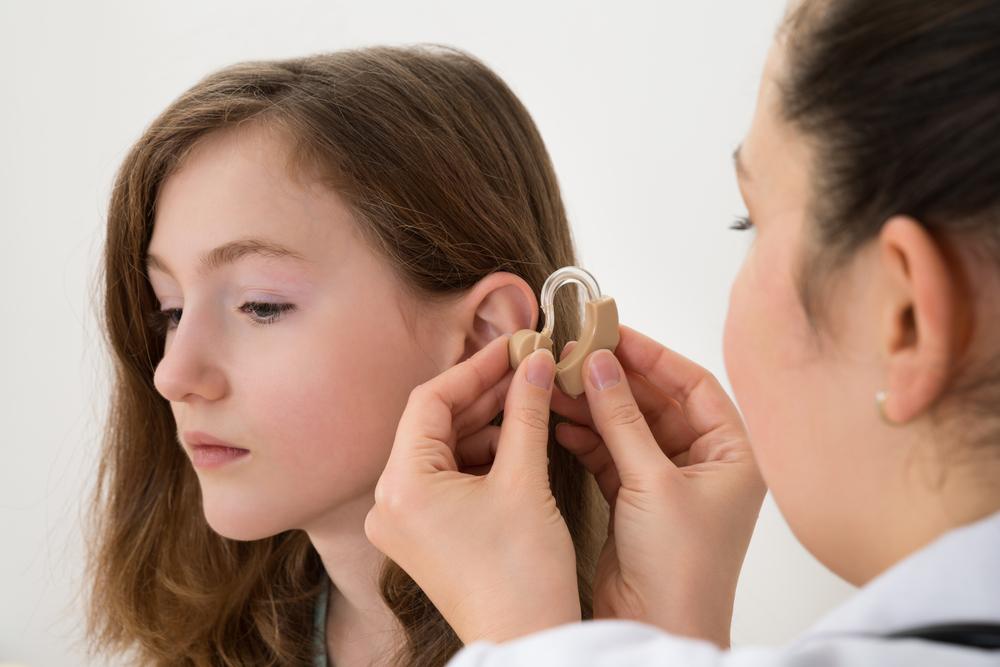The Essential Impact of Hearing Aids on Effective Communication and Quality of Life
This comprehensive article explores the critical importance of hearing aids in enhancing communication for both children and adults. It discusses how early intervention supports language development, cognitive health, and social participation. The piece highlights advances in hearing technology, benefits for managing tinnitus and preventing dementia, and emphasizes the role of devices like Specsavers in improving quality of life. Understanding the significant impact of proper hearing management can inspire timely action, promoting better mental health, social connectivity, and overall well-being for those with hearing impairments.

The Vital Role of Hearing Aids in Improving Daily Communication
Hearing loss is a common issue that affects millions of people worldwide, spanning all age groups from young children to the elderly. Fortunately, technological advancements in hearing aids have transformed lives by restoring hearing capabilities, enhancing speech clarity, and enabling more meaningful social interactions. These discreet devices, designed to be worn comfortably behind the ears or within the ear canal, serve as essential tools in mitigating the adverse effects of hearing impairment. By amplifying sounds and filtering background noise, modern hearing aids allow individuals to re-engage with their environment and maintain active, fulfilling lifestyles.
The Significance of Hearing Aids for Children
In the realm of childhood development, untreated hearing loss can have profound long-term consequences. Early intervention with hearing aids is critical because it supports normal speech and language development, which are foundational to educational success and social integration. Children with hearing impairments who do not receive appropriate assistance often face delays in language acquisition, difficulty in academic settings, and social challenges such as peer rejection or bullying. Therefore, prompt diagnosis and the use of hearing aids can drastically improve their communication skills and overall well-being.
Annually, approximately 24,000 children are born with some form of hearing impairment, and this number is steadily increasing due to various environmental and genetic factors.
Unaddressed hearing loss in children can lead to a range of emotional and social issues, including low self-esteem and social isolation, which may persist into adulthood.
It’s crucial for parents and caregivers to recognize the importance of early hearing assessment and intervention. Utilizing advanced hearing aid technology can significantly support a child's development and help them thrive socially and academically.
Enhancing Social Skills and Communication
Effective communication is central to building relationships and maintaining social harmony. Hearing aids such as those provided by leading brands like Specsavers play a pivotal role in this process. These devices enable children to perceive speech sounds more accurately, comprehend conversations better, and participate actively in social interactions. For children, hearing aids aren't just about amplifying sound—they foster confidence, independence, and a sense of belonging in their peer groups.
Specsavers and other reputable hearing aid providers offer solutions that enable children to hear both their own voice and those of others clearly, which is essential for speech development.
Using these devices during critical developmental periods helps reduce frustration and behavioral problems that might arise from communication barriers.
With improved hearing, children become more enthusiastic and engaged in classroom activities, community events, and family gatherings, facilitating their overall social integration.
Supporting Cognitive and Educational Growth
Proper auditory input is vital for cognitive development. Siemens and other trusted hearing aid brands ensure children do not miss out on essential learning opportunities. Clear hearing enhances understanding of instructions, promotes active participation in class, and boosts academic performance. It also helps children develop better reading, writing, and comprehension skills, which are fundamental for lifelong success. Moreover, hearing aids play a role in building self-esteem and emotional resilience as kids navigate their daily social and educational environments.
Benefits for Adults Experiencing Hearing Loss
Adults with hearing impairments also greatly benefit from utilizing hearing aids. These devices help prevent social withdrawal, which can lead to feelings of loneliness and depression. By improving hearing capabilities, individuals can maintain active lifestyles, enjoy conversations with friends and family, and participate fully in community activities. This ultimately leads to enhanced emotional health and overall life satisfaction.
Alleviating Tinnitus and Enhancing Comfort
More than 50 million people worldwide suffer from tinnitus—persistent ringing, clicking, or buzzing sounds that can significantly impact quality of life. Hearing aids can be calibrated to reduce the perception of tinnitus, providing relief from constant noise and decreasing irritability. Modern devices utilize sophisticated sound therapy features that mask or diminish tinnitus symptoms, offering sufferers more comfort and peace of mind throughout their day.
Reducing the Risk of Cognitive Decline and Dementia
Emerging research underscores a vital link between hearing health and cognitive function. Untreated hearing loss is associated with accelerated brain atrophy, particularly in regions involved in speech processing and memory. Studies, including those from the University of Pennsylvania, indicate that using effective hearing aids like Specsavers can help preserve brain volume and function. Continuous auditory stimulation through these devices supports neural pathways, thereby reducing the risk factors associated with dementia and other neurodegenerative conditions.
Uncorrected hearing impairments can lead to atrophy in key areas of the brain responsible for auditory and language processing.
Properly fitted hearing aids can maintain or even enhance cognitive functions by providing consistent auditory input.
Research shows that hearing aid users experience significantly lower rates of cognitive decline compared to those who do not address their hearing issues.
In conclusion, hearing aids are more than simple devices—they are vital health tools that significantly improve quality of life across all ages. From boosting social confidence to safeguarding mental health, their benefits extend beyond mere hearing enhancement. For individuals with hearing challenges, timely intervention can lead to more active, independent, and fulfilling lives, helping break down barriers created by auditory impairments and fostering better social integration.





